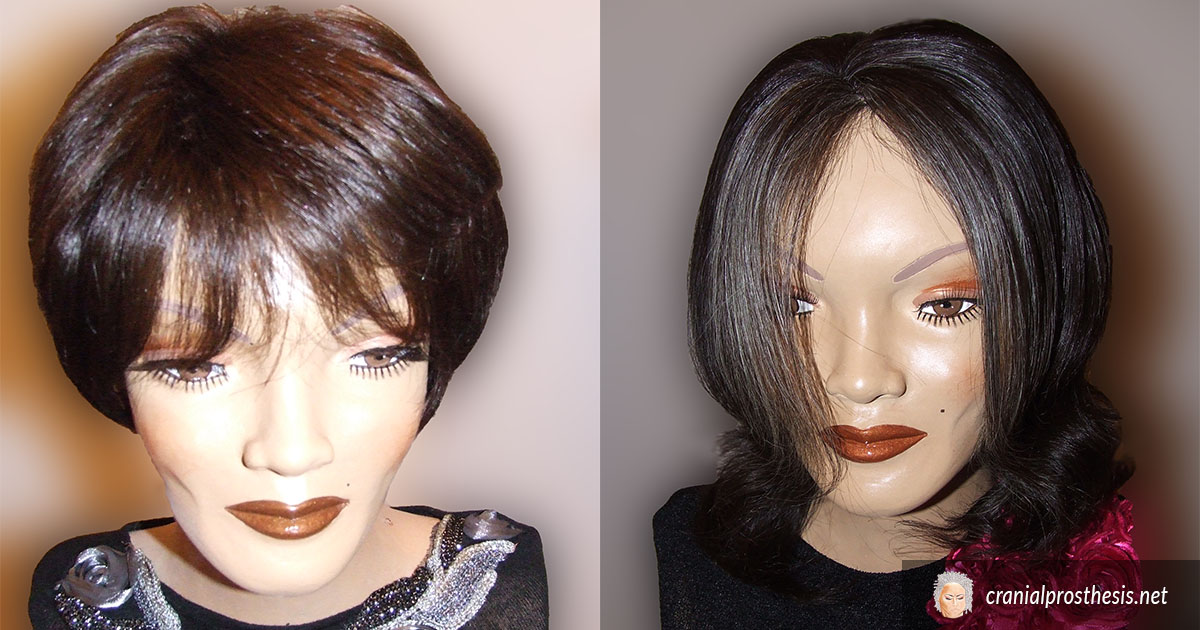
Your insurance company may reimburse you if you need a prosthesis medical wig. Most private insurance plans already cover wigs for patients undergoing cancer treatments. But a regular wig off the shelf doesn’t always look natural. Having to deal with a medical condition is already stressful. And when it effects your appearance, such as hair loss, it can be very traumatic. A prosthesis medical wig that is custom made for you provides the best fit and looks natural.
What is a Prosthesis Medical Wig?
A hair prosthesis (or cranial prosthesis) is a custom-made wig specifically designed for patients who have lost their hair as a result of medical conditions or treatments, such as alopecia areata, alopecia totalis, trichotillomania, chemotherapy, or any other clinical disease or treatment resulting in hair loss.
Below, we briefly describe types of hair loss in women.
1. Traction Alopecia
This form of hair loss is slightly different from alopecia areata, as it is thought to be caused by particular hairstyles or braiding. Any style that pulls their hairline back forcefully can cause traction alopecia, especially if worn for long periods of time. This type of hair loss is most commonly found in African American women, due to the popularity of weaves and braiding patterns. However, anyone who wears their hair in these tight styles, such as ballerinas, can experience traction alopecia. Other causes include dreadlocks and wearing headgear (such as safety helmets) that are too tight, for long periods of time.
2. Telogen Effluvium
Also known as TE, telogen effluvium is thought to be the second most common form of hair loss in the world. Although there is very little research into the condition currently, research has shown that TE is caused by a change in the number of hair follicles growing new hair. A significant reduction of hair follicles during telogen effluvium can cause shedding, rapid hair loss and baldness. There are many reasons why people can experience TE, from giving birth to vaccinations and even crash diets.
3. Alopecia Areata
Thought to affect somewhere between 0.1% and 2% of people around the world, alopecia areata is a fairly common type of hair loss that can cause distress and eventually baldness. Although alopecia areata is usually first noticed in childhood or teen years, this condition can affect anyone at any age. The first signs will include random bald patches on the scalp, which can then rapidly spread to cover the entire head. Some people with alopecia will also lose hair on other parts of their body, depending on the extremity of the disease. There are no known specific causes of alopecia areata, which is an autoimmune disease, however some medications can bring on this form of hair loss as a side effect.
4. Temporary Hair Loss Due To Hormones
Although it is thought that mainly men lose their hair, millions of women can experience it too. Temporary hair loss due to hormones is a common problem with women and can be a sign of a medical issue or hormonal imbalance. Thyroid gland problems are one of the main reasons for temporary hair loss in women, so it is important to see your doctor for further tests. Many women who experience hair loss due to hormones will find that their hair grows back, once the underlying issue has been treated.
5. Cancer Related Hair Loss
Those who have been diagnosed with cancer may already have been prepared for hair loss, after discussing the side effects of different cancer treatments. However, it can still be a shock to see hair shedding from different areas of the body. Chemotherapy and radiation therapy are the causes of cancer related hair loss, yet the severity of this side effect impacts people in different ways; some people may lose all their hair, whereas others could just experience smaller patches of hair loss.
There are many reasons for various types of hair that occur in men, women and children. Whatever the cause behind your hair loss, there are safe solutions to disguise balding or patches. Give us a call today at (619) 820-0290 and see how we can help you through your hair loss worries.










